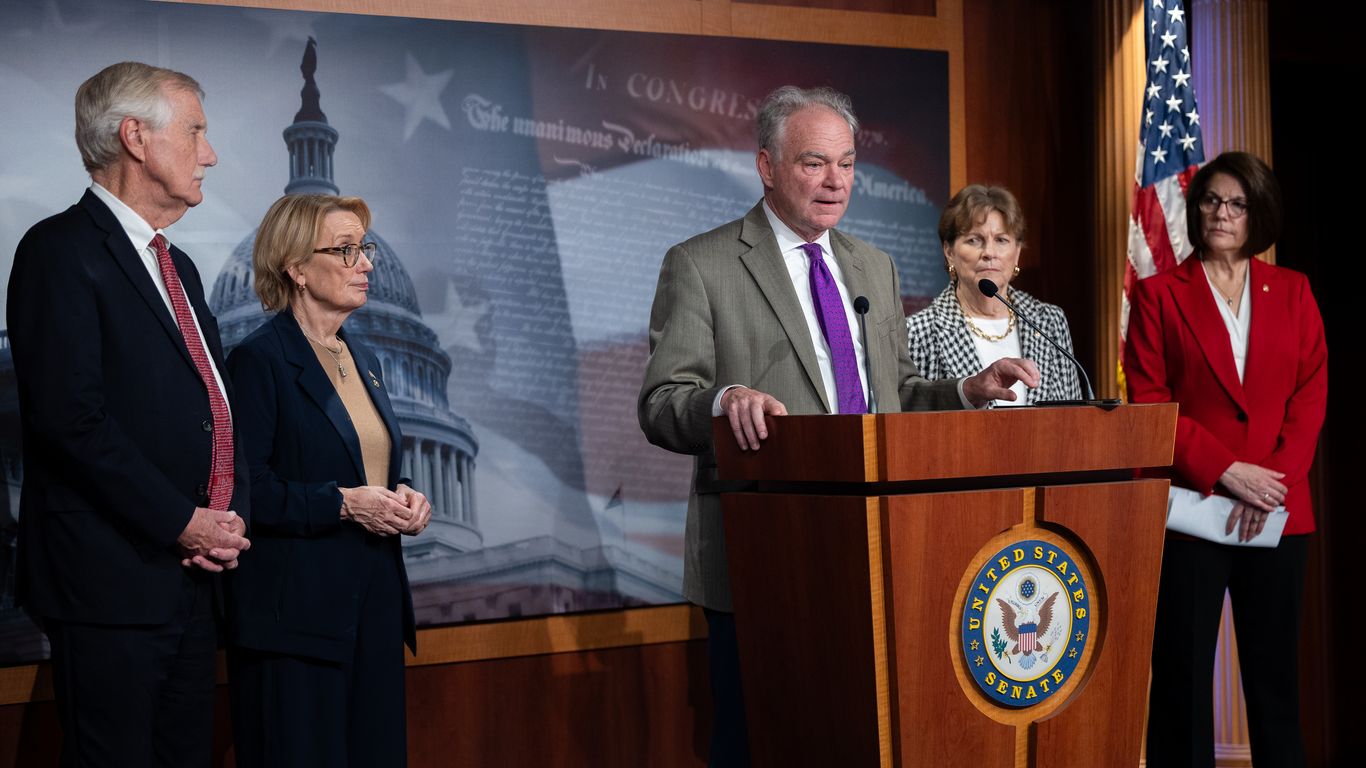
"It also signaled the mounting pain of the shutdown, which has furloughed federal workers, halted food aid and threatened travel disruption ahead of Thanksgiving. The defection exposed the party's deep split between those demanding a fight against President Trump and GOP leadership and centrists willing to compromise to keep the government open. State of play: The deal funds the government through January. In exchange for reopening the government, Senate Majority Leader John Thune (R-S.D.) promised a December vote on extending the ACA tax credits, though the deal didn't guarantee such a measure would pass."
"The intrigue: None of the lawmakers who voted to advance the deal will face voters in 2026: Six are not up for election, and two are retiring. Sen. Angus King (I-Maine) King, an independent who caucuses with Democrats and a former Maine governor, said his effort to broker a compromise "wasn't working." He said Republicans had "made it clear" they wouldn't discuss extending Affordable Care Act credits until the shutdown ended. King had previously voted to advance the GOP's stopgap proposal and voted in March to avoid a government shutdown. He said in a Monday MSNBC interview that the shutdown gave President Trump "more power," citing the chaos surrounding federal food assistance. He added, "standing up to Donald Trump didn't work.""
"Sen. Dick Durbin (D-Ill.) Durbin, the Senate Democratic whip, was the only member of the party's leadership to break ranks on the vote. He also voted to break a filibuster of a separate funding bill back in March. Durbin announced his retirement in April, meaning he is not up for reelection in 2026. "This bill is not perfect," he acknowledged in a statement. But he said it "takes important steps to reduce their shutdown's hurt," like funding SNAP and reversing firings initiated during the government shutdown."
The Senate advanced a stopgap funding deal to reopen the federal government through January. The agreement included a promise of a December vote on extending Affordable Care Act tax credits but provided no guarantee of passage. Several senators who advanced the measure are not facing reelection in 2026, which reduced electoral pressure on their decision. The shutdown caused furloughed federal workers, halted food aid, and threatened travel disruptions ahead of Thanksgiving. Lawmakers framed the bill as imperfect yet necessary to restore critical programs, fund SNAP, and reverse recent personnel actions taken during the shutdown.
Read at Axios
Unable to calculate read time
Collection
[
|
...
]